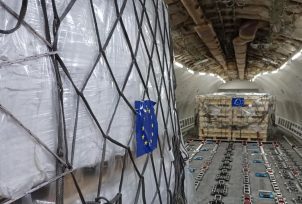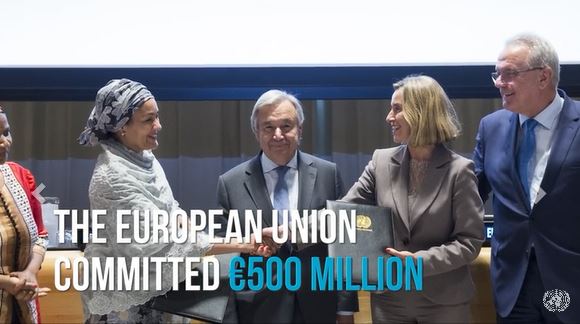EU cracks down on illegal import of cultural goods used to finance terrorism

The European Commission has put forward new rules to clamp down on the illegal import and trafficking of cultural goods from outside the EU, often linked to terrorist financing and other criminal activity.
“Money is oxygen to terrorist organisations such as Daesh,” said Commission First Vice President Frans Timmermans, announcing the measures. “We are taking action to cut off each of their sources of financing. This includes the trade of cultural goods, as terrorists derive funding from the looting of archaeological sites and the illegal sale of cultural objects. By preventing them from entering the EU, we can help dry up this source of income.”
At the moment, the EU applies prohibitions on goods from Iraq and Syria but there is no general EU framework for the import of cultural goods, and current rules can be exploited by unscrupulous exporters and importers, who can use the profits to fund illegal activities such as terrorism.
The new rules foresee a number of actions which should ensure that the importation of illicit cultural goods becomes much more difficult in the future:
- A new common EU definition for ‘cultural goods’ at importation which covers a broad range of objects including archaeological finds, ancient scrolls, the remains of historical monuments, artwork, collections and antiques.
- The introduction of a new licensing system for the import of archaeological objects, parts of monuments and ancient manuscripts and books.
- For other categories of cultural goods, importers will now have to go through a more rigorous certification system by submitting a signed statement or affidavit as proof that the goods have been exported legally from the third country.
- Customs authorities will also have the power to seize and retain goods when it cannot be demonstrated that the cultural goods in question have been legally exported.
A string of crimes against our common cultural heritage have been perpetrated by warring factions and terrorist entities all over the world. Recent reports have also shown that valuable artworks, sculptures and archaeological artefacts are being sold and imported into the EU from certain non-EU countries, with those profits potentially used to finance terrorist activities.
Read more
Q&A on new proposal to fight illicit trade in cultural goods
DG TAXUD webpage on the new proposal to fight illicit trade in cultural goods




























 Syria
Syria 





